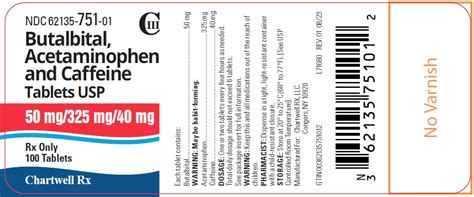What Is Naproxen

Naproxen is a nonsteroidal anti-inflammatory drug (NSAID) that is widely used to relieve pain, reduce inflammation, and lower fever. It is a propionic acid derivative, which is a class of NSAIDs that also includes ibuprofen and ketoprofen. Naproxen is available in both prescription and over-the-counter (OTC) forms, and it is commonly used to treat a variety of conditions, including arthritis, menstrual cramps, headaches, and muscle and joint pain.
How Naproxen Works
Naproxen works by blocking the production of prostaglandins, which are hormone-like substances that cause pain and inflammation in the body. Prostaglandins are produced by the body’s enzyme system, known as cyclooxygenase (COX), and they play a crucial role in the inflammatory response. By blocking the production of prostaglandins, naproxen reduces inflammation, pain, and fever.
Mechanism of Action
The mechanism of action of naproxen involves the inhibition of the COX enzyme, which is responsible for converting arachidonic acid into prostaglandins. There are two forms of the COX enzyme: COX-1 and COX-2. COX-1 is involved in maintaining the normal lining of the stomach and intestines, while COX-2 is involved in the production of prostaglandins that cause inflammation and pain. Naproxen is a non-selective COX inhibitor, meaning that it blocks both COX-1 and COX-2 enzymes.
Uses of Naproxen
Naproxen is used to treat a variety of conditions, including:
- Arthritis: Naproxen is used to treat osteoarthritis, rheumatoid arthritis, and ankylosing spondylitis.
- Menstrual cramps: Naproxen is used to relieve menstrual cramps and other symptoms associated with primary dysmenorrhea.
- Headaches: Naproxen is used to treat tension headaches and migraines.
- Muscle and joint pain: Naproxen is used to relieve pain and inflammation caused by muscle and joint injuries, such as sprains and strains.
- Fever: Naproxen is used to reduce fever in adults and children.
Forms of Naproxen
Naproxen is available in several forms, including:
- Tablets: Naproxen tablets are available in 250mg, 375mg, and 500mg strengths.
- Capsules: Naproxen capsules are available in 250mg and 500mg strengths.
- Suspension: Naproxen suspension is a liquid form of the medication that is available in 125mg/5mL strength.
- Extended-release tablets: Naproxen extended-release tablets are available in 375mg and 500mg strengths.
Side Effects of Naproxen
Naproxen can cause several side effects, including:
- Gastrointestinal side effects: Naproxen can cause stomach upset, nausea, vomiting, and diarrhea.
- Allergic reactions: Naproxen can cause allergic reactions, such as hives, itching, and difficulty breathing.
- Cardiovascular side effects: Naproxen can increase the risk of heart attack and stroke, especially when used in high doses or for long periods of time.
- Kidney and liver damage: Naproxen can cause kidney and liver damage, especially when used in high doses or for long periods of time.
Interactions with Other Medications
Naproxen can interact with several medications, including:
- Blood thinners: Naproxen can increase the risk of bleeding when used with blood thinners, such as warfarin.
- Diuretics: Naproxen can reduce the effectiveness of diuretics, which are medications used to treat high blood pressure and edema.
- Beta blockers: Naproxen can increase the risk of heart attack and stroke when used with beta blockers, which are medications used to treat high blood pressure and heart conditions.
Precautions and Warnings
Naproxen can cause several precautions and warnings, including:
- Pregnancy and breastfeeding: Naproxen should be used with caution in pregnant and breastfeeding women, as it can cause harm to the fetus or baby.
- Children: Naproxen should be used with caution in children, as it can cause stomach upset and other side effects.
- Elderly: Naproxen should be used with caution in elderly patients, as it can cause stomach upset and other side effects.
- Kidney and liver disease: Naproxen should be used with caution in patients with kidney or liver disease, as it can cause damage to these organs.
Conclusion
Naproxen is a widely used NSAID that is effective in relieving pain, reducing inflammation, and lowering fever. However, it can cause several side effects and interact with other medications. It’s essential to use naproxen with caution and under the guidance of a healthcare professional, especially in patients with a history of stomach ulcers, bleeding disorders, or kidney and liver disease.
What is the recommended dosage of naproxen for adults?
+The recommended dosage of naproxen for adults is 250-500mg every 8-12 hours, as needed.
Can naproxen be used in children?
+Yes, naproxen can be used in children, but it should be used with caution and under the guidance of a healthcare professional.
What are the common side effects of naproxen?
+The common side effects of naproxen include stomach upset, nausea, vomiting, and diarrhea.
| Medication | Dosage | Frequency |
|---|---|---|
| Naproxen | 250-500mg | Every 8-12 hours, as needed |




